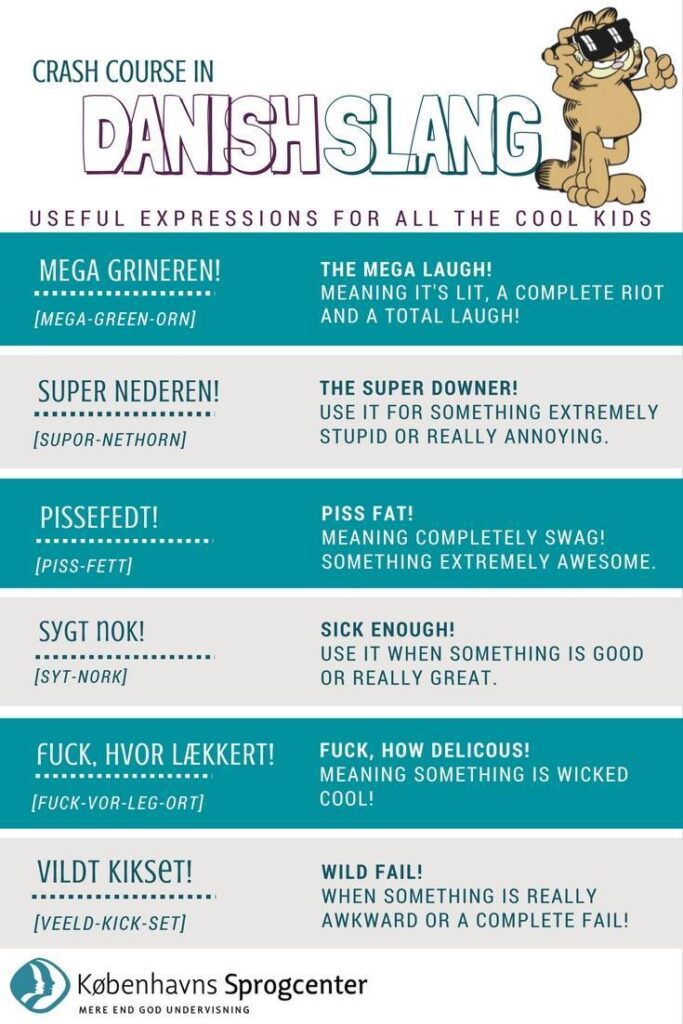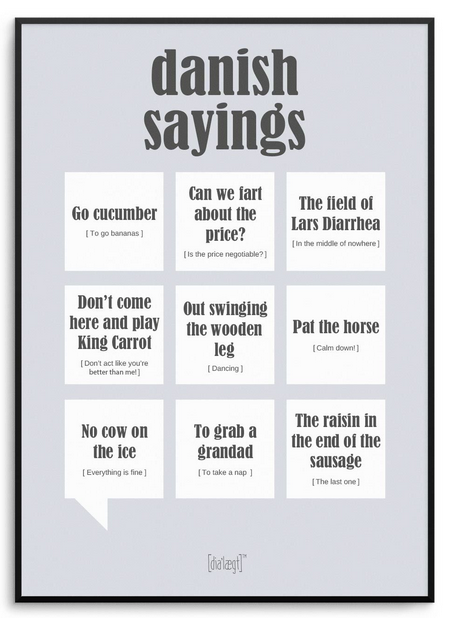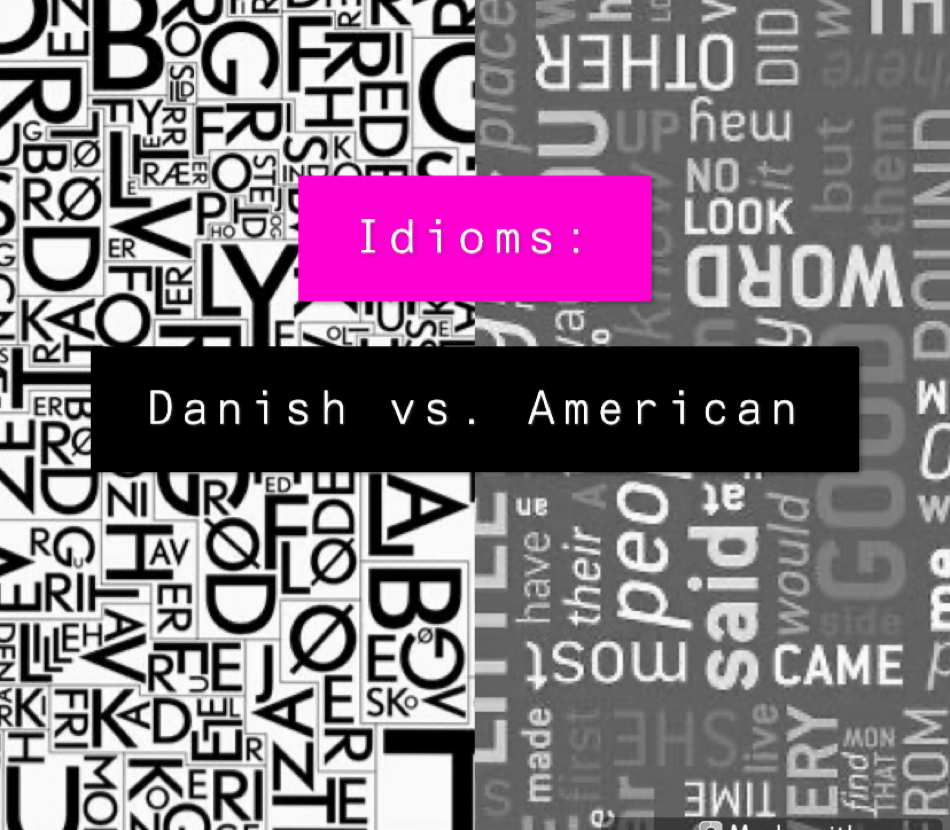Smack the horse, crack and break, and take a grandad are just a few of our funny Danish sayings. It still makes Devin laugh when I ask him to “take the dishes” when I know I should say “do,” or when I say “two seconds” instead of just “one.”
Navigating English as a second language can be tough and confusing at times. I consider my English “pretty good,” which makes me feel even more odd when I mess up. I’ve lived in California for 9 months now and find it fascinating how the languages are similar in many ways and yet still have their own charm.

So many of the cultural expressions are imprinted in us–we never stop to think about them. We’ve been saying them for decades! So when we learn a new language, we also have to adapt new and maybe rethink old sayings.
— To the left, there’s a little guide to sound (almost) like a native in Danish.
Crash course made by Københavns Sprogcenter.
American English – Danish (translated):
- Hold your horses – smack the horse (klap lige hesten)
Meaning: Wait a minute - One second – two seconds (to sekunder)
Meaning: Just a moment - Cat nap – Grandad (morfar)
Meaning: A nap - Break a leg – crack and break (knæk og bræk)
Meaning: Good luck - Bought the farm – took off the wooden shoes (stillet træskoene)
Meaning: To die - Holy cow – take a vacation ( hold da ferie)
Meaning: Wow - Go bananas – go cucumber (gå agurk)
Meaning: Go crazy - Kill two birds with one stone – hit two flies with one swat (slå to fluer med et smæk)
Meaning: Achieve two aims at once - Under the table – In the fence ( I hegnet)
Meaning: Be drunk - Jesus Christ – Mild Moses (milde Moses)
Meaning: Strong expression of disbelief, disappointment, pain etc. - On good terms – On good foot (på god fod)
Meaning: Friendly with each other

And since we ran out of weird English idioms to imitate, we just made more up on our own:
- Loves to read – Reading horse (Læsehest)
- Loves water – water dog (Vandhund)
- Very drunk – chicken drunk (Hønefuld)
- Wrong: gone wrong in the town (gået galt i byen)
- Very windy – blowed like a half pelican (Blæser en halv pelikan)
- Be lucky – Shot the parrot (skudt papegøjen)
- That’s nonsense – You must have eaten nails (du må have spist søm)
- Bad hearing – Wheat in the ears (hø i ørene)
- Countryside – Lars diarrheas fields (Lars tyndskids marker)
And I could continue for a very long time…
This was me showing you (and defending myself!) that I have reasons to sound silly sometimes. Have a good day!
Kys og kram,
Victoria Liv

